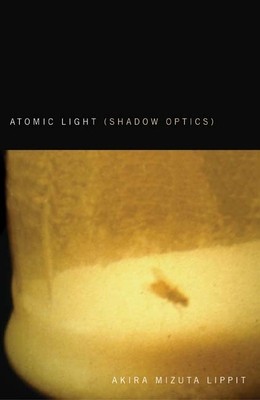
- We will send in 10–14 business days.
- Author: Akira Mizuta Lippit
- Publisher: University of Minnesota Press
- ISBN-10: 0816646112
- ISBN-13: 9780816646111
- Format: 16.4 x 22.7 x 1.2 cm, softcover
- Language: English
- SAVE -10% with code: EXTRA
Reviews
Description
Dreams, x-rays, atomic radiation, and "invisible men" are phenomena that are visual in nature but unseen. Atomic Light (Shadow Optics) reveals these hidden interiors of cultural life, the "avisual" as it has emerged in the writings of Jorge Luis Borges and Jacques Derrida, Tanizaki Jun'ichirô and Sigmund Freud, and H. G. Wells and Ralph Ellison, and in the early cinema and the postwar Japanese films of Kobayashi Masaki, Teshigahara Hiroshi, Kore-eda Hirokazu, and Kurosawa Kiyoshi, all under the shadow cast by the atomic bombings of Hiroshima and Nagasaki.
Akira Mizuta Lippit focuses on historical moments in which such modes of avisuality came into being--the arrival of cinema, which brought imagination to life; psychoanalysis, which exposed the psyche; the discovery of x-rays, which disclosed the inside of the body; and the "catastrophic light" of Hiroshima and Nagasaki, which instituted an era of atomic discourses. With a taut, poetic style, Lippit produces speculative readings of secret and shadow archives and visual structures or phenomenologies of the inside, charting the materiality of what both can and cannot be seen in the radioactive light of the twentieth century. Akira Mizuta Lippit is professor of cinema, comparative literature, and Japanese culture at the University of Southern California. He is the author of Electric Animal: Toward a Rhetoric of Wildlife (Minnesota, 2000).EXTRA 10 % discount with code: EXTRA
The promotion ends in 16d.23:25:20
The discount code is valid when purchasing from 10 €. Discounts do not stack.
- Author: Akira Mizuta Lippit
- Publisher: University of Minnesota Press
- ISBN-10: 0816646112
- ISBN-13: 9780816646111
- Format: 16.4 x 22.7 x 1.2 cm, softcover
- Language: English English
Dreams, x-rays, atomic radiation, and "invisible men" are phenomena that are visual in nature but unseen. Atomic Light (Shadow Optics) reveals these hidden interiors of cultural life, the "avisual" as it has emerged in the writings of Jorge Luis Borges and Jacques Derrida, Tanizaki Jun'ichirô and Sigmund Freud, and H. G. Wells and Ralph Ellison, and in the early cinema and the postwar Japanese films of Kobayashi Masaki, Teshigahara Hiroshi, Kore-eda Hirokazu, and Kurosawa Kiyoshi, all under the shadow cast by the atomic bombings of Hiroshima and Nagasaki.
Akira Mizuta Lippit focuses on historical moments in which such modes of avisuality came into being--the arrival of cinema, which brought imagination to life; psychoanalysis, which exposed the psyche; the discovery of x-rays, which disclosed the inside of the body; and the "catastrophic light" of Hiroshima and Nagasaki, which instituted an era of atomic discourses. With a taut, poetic style, Lippit produces speculative readings of secret and shadow archives and visual structures or phenomenologies of the inside, charting the materiality of what both can and cannot be seen in the radioactive light of the twentieth century. Akira Mizuta Lippit is professor of cinema, comparative literature, and Japanese culture at the University of Southern California. He is the author of Electric Animal: Toward a Rhetoric of Wildlife (Minnesota, 2000).

Reviews